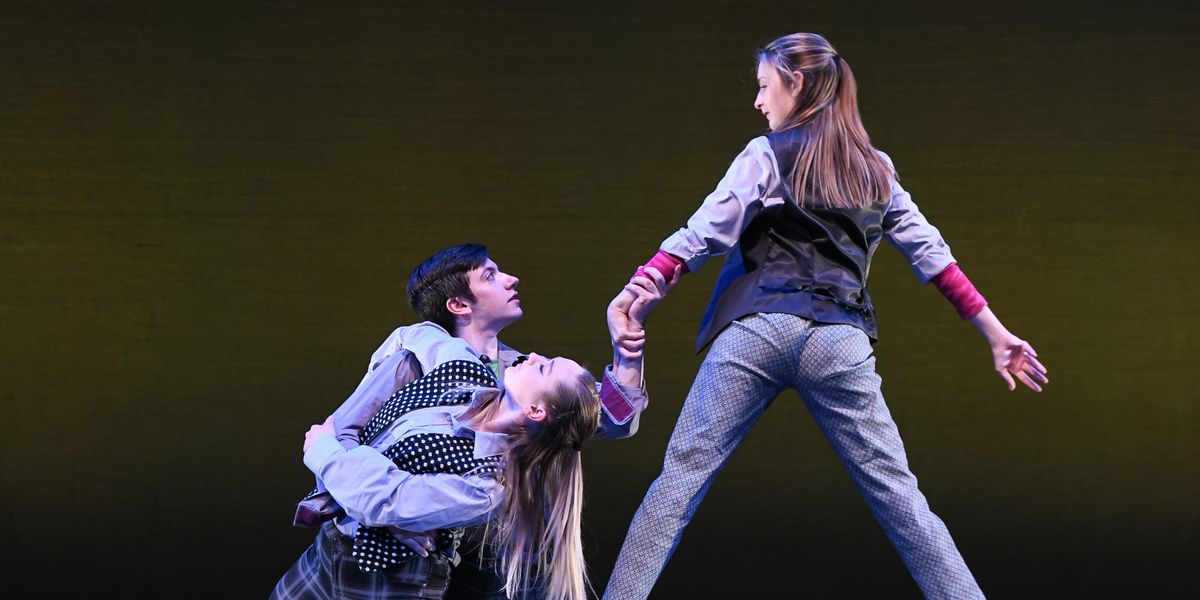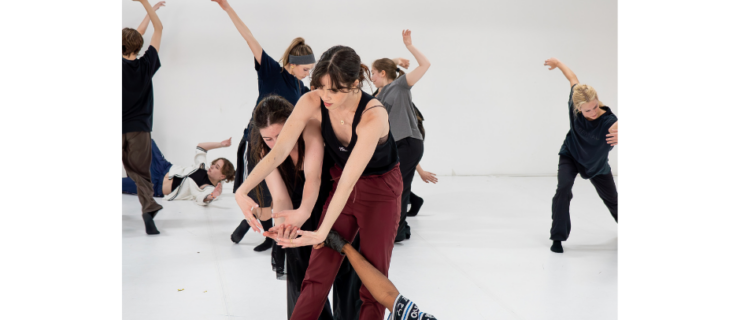Every Myth About Double-Majoring, Busted
In today’s dance world of freelance gigs and cobbled-together careers, it makes sense that students are thinking about supplementing their dance major with another subject. But that doesn’t mean a second major has to be your backup plan, or that you have to double-major to support yourself. Taking on another area of study—or not—is all about what you’re interested in and how you envision your college experience.
Don’t be fooled by these common double-major misconceptions:
MYTH: It’s impossible to be a double major if you’re in a BFA program.
While there are a few BFA programs that don’t let dancers double-major, most schools will allow it as long as the scheduling works out.
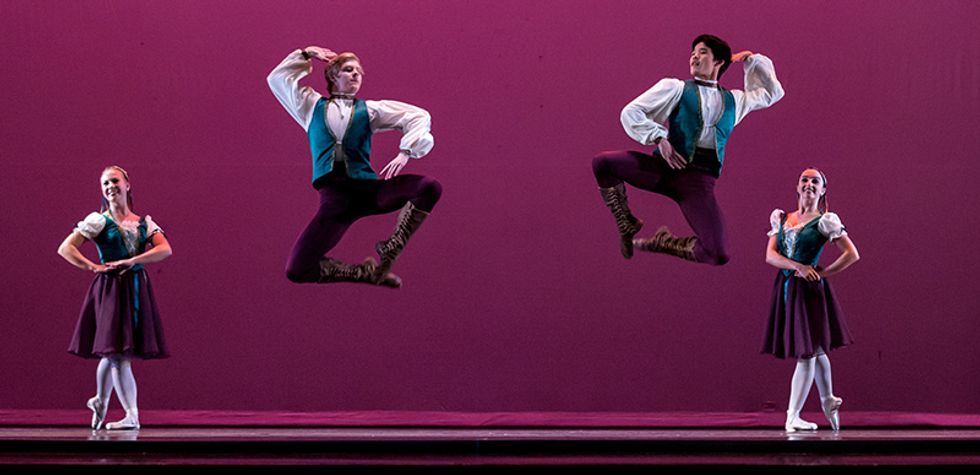
Texas Christian University students. Photo by Sharen Bradford/The Dancing Image
MYTH: Dancers who double-major need to take classes over the summer, or take an extra semester or year.
Taking extra time may be necessary. But often it’s possible to get both majors done in four years if you plan wisely. Students can get a leg up by taking AP or dual-credit classes in high school that may count for general education requirements in college.
MYTH: Only certain types of majors can be paired with dance.
Choosing a second major comes down to what you’re passionate about, but thinking about the particulars of your dance program can help: Are you in a BA program with an emphasis on dance history and writing? Or a technique-focused BFA department with strict scheduling constraints? These can be deciding factors when choosing what might complement your dance studies.
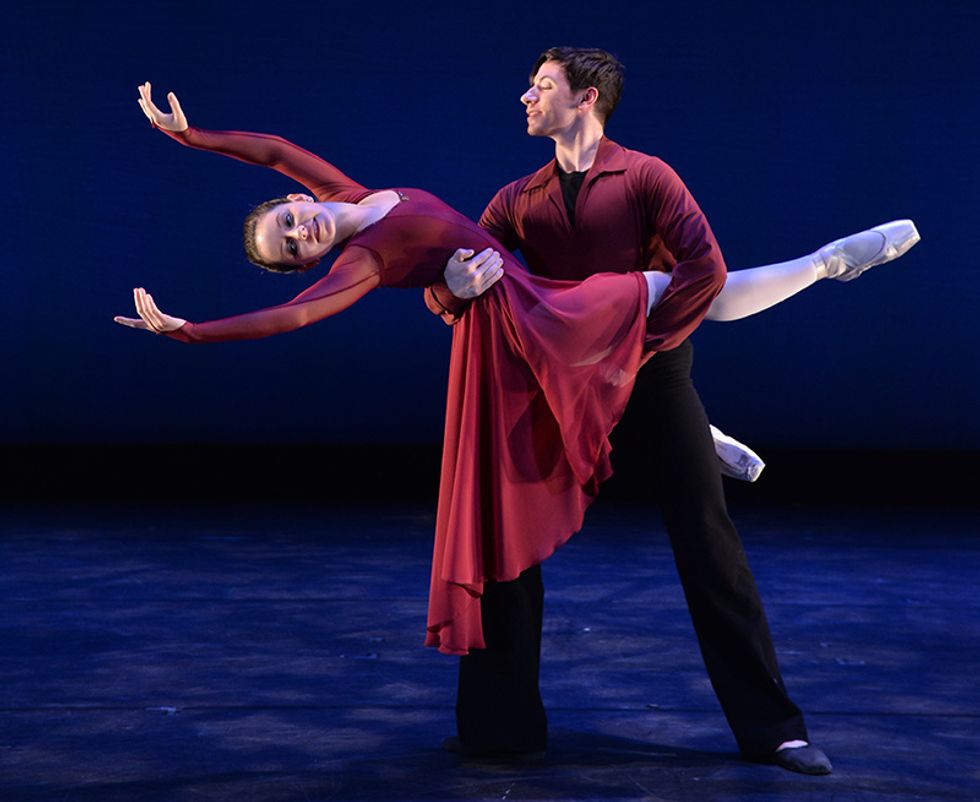
Muhlenberg student Winfield Maben double majors in dance and English. PC Matthew Wright, Fig Tree Photography
MYTH: You can’t drop a major once you declare it.
There’s nothing wrong with dropping a major if it’s the right choice for you. “It’s okay to change your mind,” says Elizabeth Gillaspy, director of Texas Christian University’s School for Classical & Contemporary Dance. “Give yourself that permission.” Know that the work you’ve done for your second major hasn’t gone to waste—and that you can continue studying it as a minor or elective.
MYTH: Double-majoring will take away from your dance training.
Dancers tend to be well prepared for the challenges of double-majoring, says Gillaspy. If you’ve already been balancing your schoolwork with your dance classes and rehearsals for years, trust that you have the ability to keep doing so on a larger scale in college.
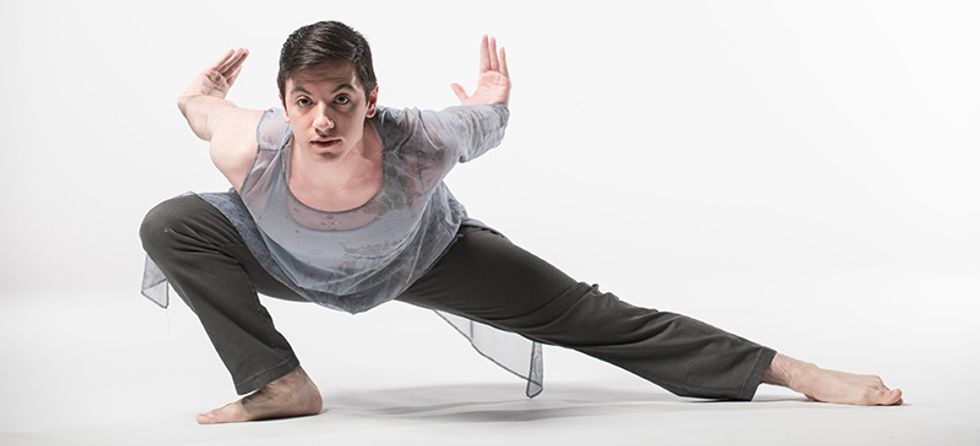
Winfield Maben. Photo by Matthew Wright, Fig Tree Photography
MYTH: You need to have both your majors planned out when you start college.
“Designing your path through college is an ongoing process,” says Gillaspy. “Some things will not be clear until you’re in the middle of doing them.”
MYTH: Your majors will only connect if you study another arts subject.
A second major can inform your dancing in unexpected ways, and vice versa. Winfield Maben, a dance and English double major at Muhlenberg College, has written essays on how dance is portrayed in literature, and choreographed to poetry he discovered through his English major. Gillaspy has had students connect majors like political science to their choreography.
